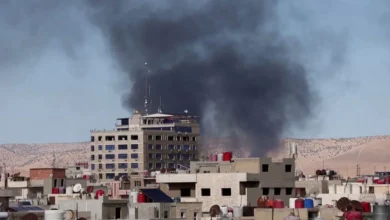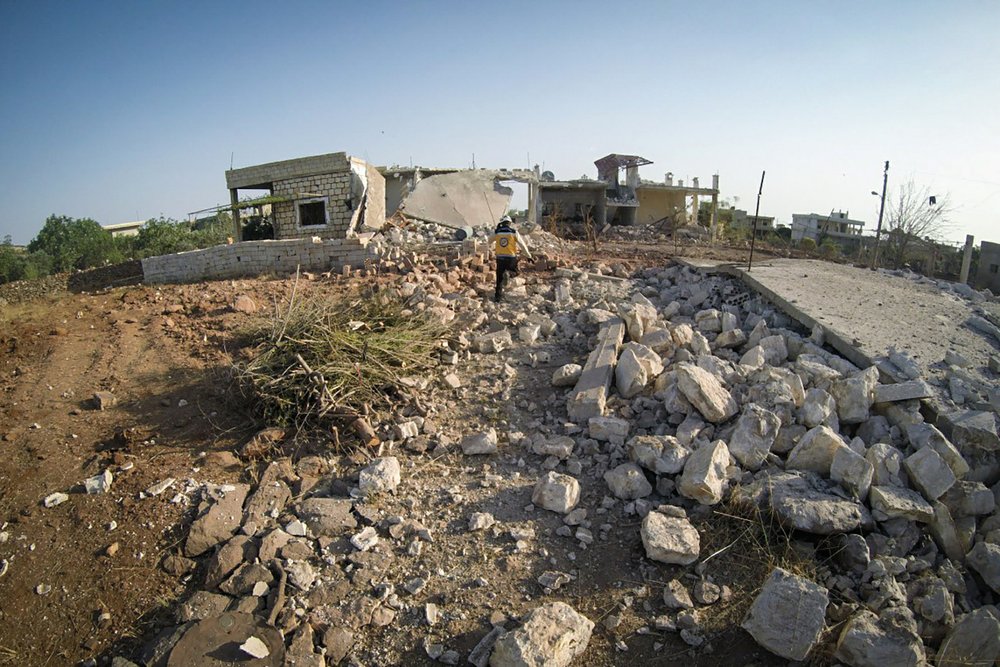Amman — Senior Syrian army ranks are packed with loyal members of President Bashar al-Assad's Alawite minority, reducing any prospect of military pressure on him to stand aside if protests grow, military experts say.
Unlike the armies in Tunisia and Egypt, whose refusal to confront non-violent demonstrations spelt the demise of their autocratic rulers, the fate of many senior Syrian military officers is closely tied to that of Assad.
Although some officers from the Sunni Muslim majority have been promoted to senior ranks, Sunni influence has been weakened and Assad's brother Maher controls key military units packed with Alawite soldiers.
"It will take an extraordinary amount of people power to defeat a regime this deeply entrenched. This is not Tunisia," said W. Andrew Terrill, research professor of national security affairs at the US Army War college.
"The regime has been careful about placing Alawite loyalists in all key positions within the military so that the regime can defeat any effort to overthrow it. Some Sunni officers have risen to very high ranks but have very little power to command troops," Terrill said from Carlisle Barracks, Pennsylvania.
The Assad family which has ruled Syria for 41 years comes from the Alawite mountains overlooking the Mediterranean, a stronghold of the secretive sect with links to Shia Islam.
Assad, who faces the greatest threat to his rule from more than two weeks of protests calling for an end to emergency law and one-party rule, has responded with a blend of force — his security forces have killed dozens of protesters — and vague promises of reform.
SECURITY BACKBONE
Residents of Deraa, cradle of the Syrian protests, say Alawite forces commanded by Assad's younger brother Maher have taken up positions around the southern city.
Maher controls the Presidential Guard, the Republican Guard, and the Fourth Armoured Division — key units that form the security backbone of the state together with the Alawite-dominated secret police.
"Some observers consider Maher al-Assad to be excessively violent and emotionally volatile. It appears that President Assad views his brother as totally trustworthy," said Terrill, a specialist in Syrian military affairs.
Although family ties ensure the loyalty of the top brass, Assad cannot antagonize the army rank-and-file with a repeat of the 1982 crackdown on the city of Hama, when his father Hafez al-Assad sent commandos, paratroopers and Baath Party irregulars to put down an armed uprising by the Muslim Brotherhood.
Hafez al-Assad's brother Rifaat personally managed the Hama operation, in which tens of thousands were killed and parts of the city flattened.
"Syria 2011 is not Syria 1982. You have hundreds of thousands of soldiers — conscripts and professional soldiers — who have seen only corruption and abuse of position by their Alawite commanders," said a former Syrian army member. "It will be very dangerous for Bashar to play this game.
"The army will not ask Bashar to step down, as was the case in Egypt and Tunisia, but he cannot easily ask the army to commit massacres either," the ex-soldier said.
Assad would also be hesitant to use Maher's Republican Guard to quell protest because it would increase resentment against Alawites, he said.
Another military expert working for a Western government said the Syrian army would fracture if the Alawite ruling hierarchy attempted a repeat of the Hama massacre, but the president could get away with smaller scale killings.
"It would also depend on how the killings are presented. There is a difference between shooting peaceful protesters and killing demonstrators who attack security forces," he said.
Although Deraa residents say Maher al-Assad's units are positioned around the city, Alawite secret police and special police units have deployed to confront demonstrators. More than 40 protesters have been killed in the clashes, witnesses said.
Terrill said Alawite units would have no qualms suppressing dissent because they have been indoctrinated to believe their community would lose out if majority Sunnis attain power.
"It can be safely assumed that virtually all of the Alawites within the military will fight to defend the regime."
Asked if Sunni soldiers could revolt if they saw more of their co-religionists killed, Terrill said: "Syria's security organs will move quickly and ruthlessly to suppress even the germs of revolt within the military."




